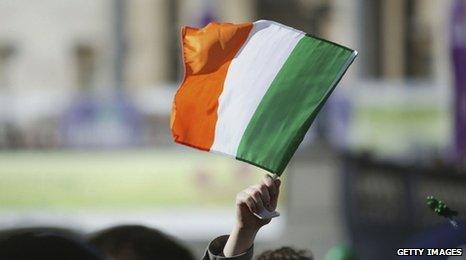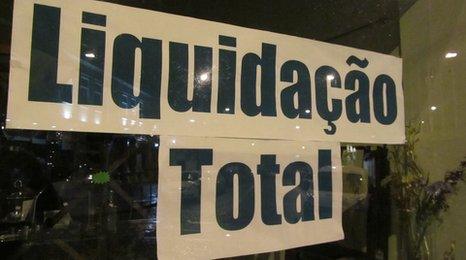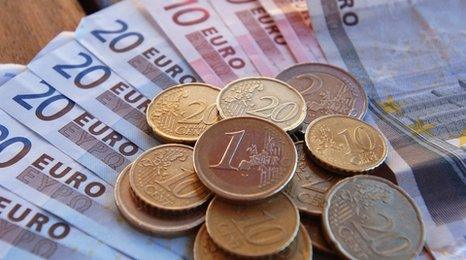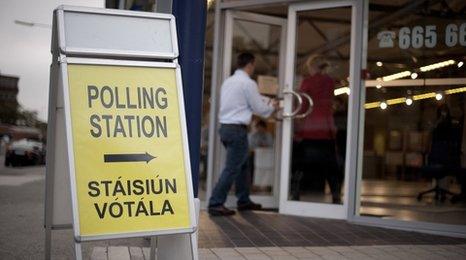Should we care about Irish debt ahead of Euro meeting?
- Published

European Union officials say they're preparing a potential financial rescue package to bail out Ireland even though the Irish government hasn't asked for it.
The country has serious debt problems after rescuing its banks.
But why should we care about what's going on in Ireland?
Your views: See what people in Ireland think about the country's debt bailout
WHAT IT MEANS FOR THE UK
If Ireland takes the bailout. It depends what bailout they go for.
The UK contributes more than six million euros (£5.1bn) to the European Financial Stability Mechanism (EFSM) and if the International Monetary Fund (IMF) steps in, the UK would fund 4.5% of any aid.
The Labour government agreed to the mechanism after the Greek debt crisis earlier this year.
We would only have to pay out if Ireland didn't make payments on the emergency loan.
The TaxPayers' Alliance says we don't want to pay to prop up the Euro and Ireland should leave it.
Even if it doesn't. David Cameron says Ireland is a key trading partner and it's in our interests to keep it stable.
It's our biggest trading partner in Europe.
Britain exports more to Ireland than to Brazil, Russia, India and China combined.
British banks with exposure to Ireland include Royal Bank of Scotland and Lloyds, both of which are part owned by UK taxpayers.
Every single person in the Republic spends an average of £3,607 a year on British products.
How bad is the Irish economy?
A few years ago, it was booming, the so-called 'Celtic Tiger'. Now it's almost bust.
The stats are grim. Unemployment at 13% and not much chance of it falling anytime soon.
House prices have collapsed by up to 60%. 100,000 people are expected to emigrate by 2014.
And worst of all, the country's deficit is expected to rocket up to 32% of the value of its economic output.
How did things go so wrong?
It all goes back to the glory days of the boom.
In 1999 when Ireland joined the Euro interest rates fell and all of a sudden it got much cheaper to borrow money. That sparked a hike in house prices.
Banks borrowed from abroad to fund all those mortgages and loans, so when the global credit crunch happened, Ireland just wasn't able to handle it.
Now the bad debts have built up, so the country's main banks are on the verge of collapsing.
Last month the government bailed out the Allied Irish Bank and that cost around 29 billion euros (£24.6bn).
So what is Ireland doing to help itself?
The Government is planning the harshest cutbacks in Ireland's history.
They've already made it clear this will affect everyone in the country.
The plan is to make 15 billion euros (£12.7bn) of cuts by 2014.
Public spending is being slashed and taxes will go up.
Critics say such dramatic moves could force the country into a deeper recession.
- Published17 November 2010

- Published6 May 2010
- Published11 February 2010

- Published2 October 2009
